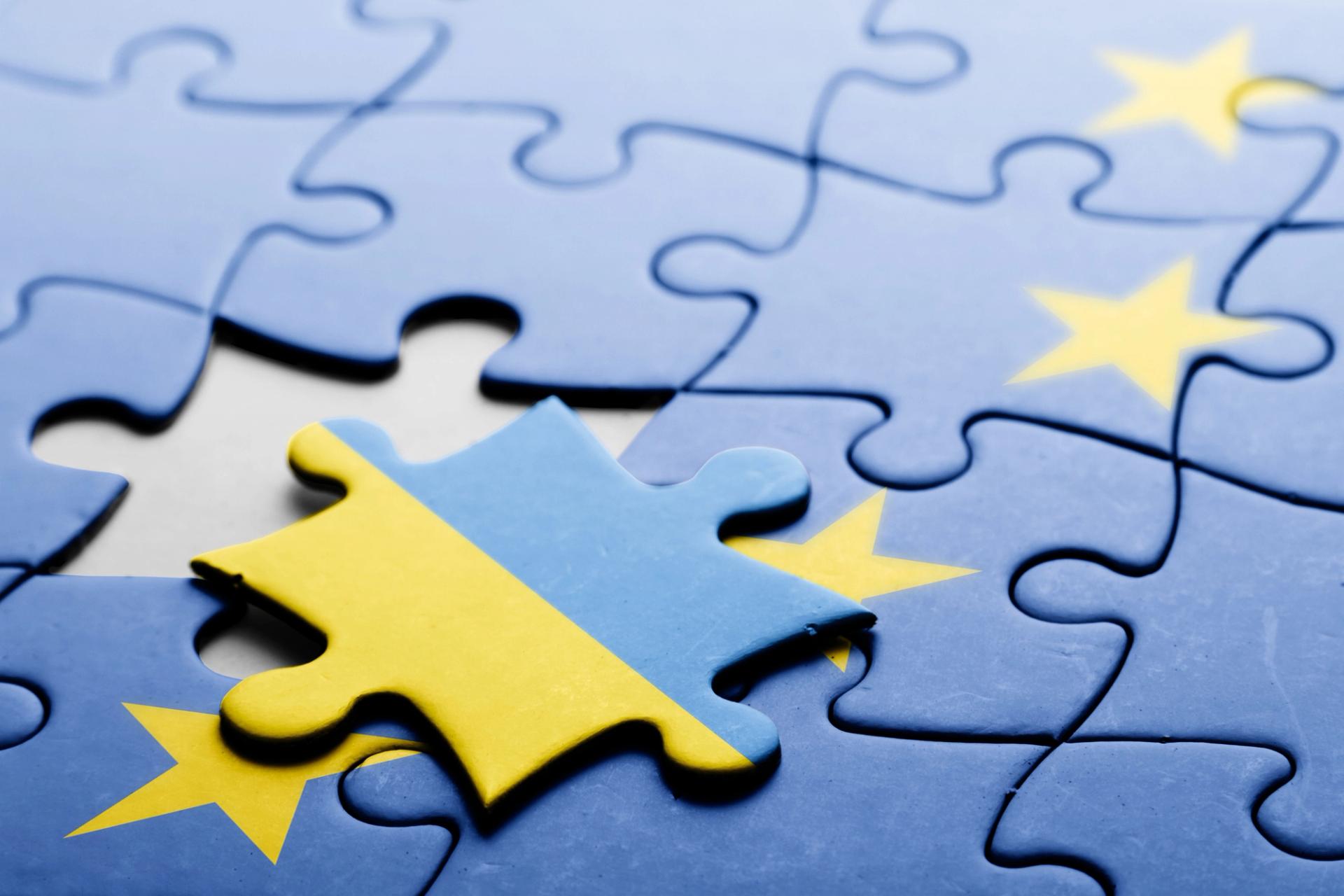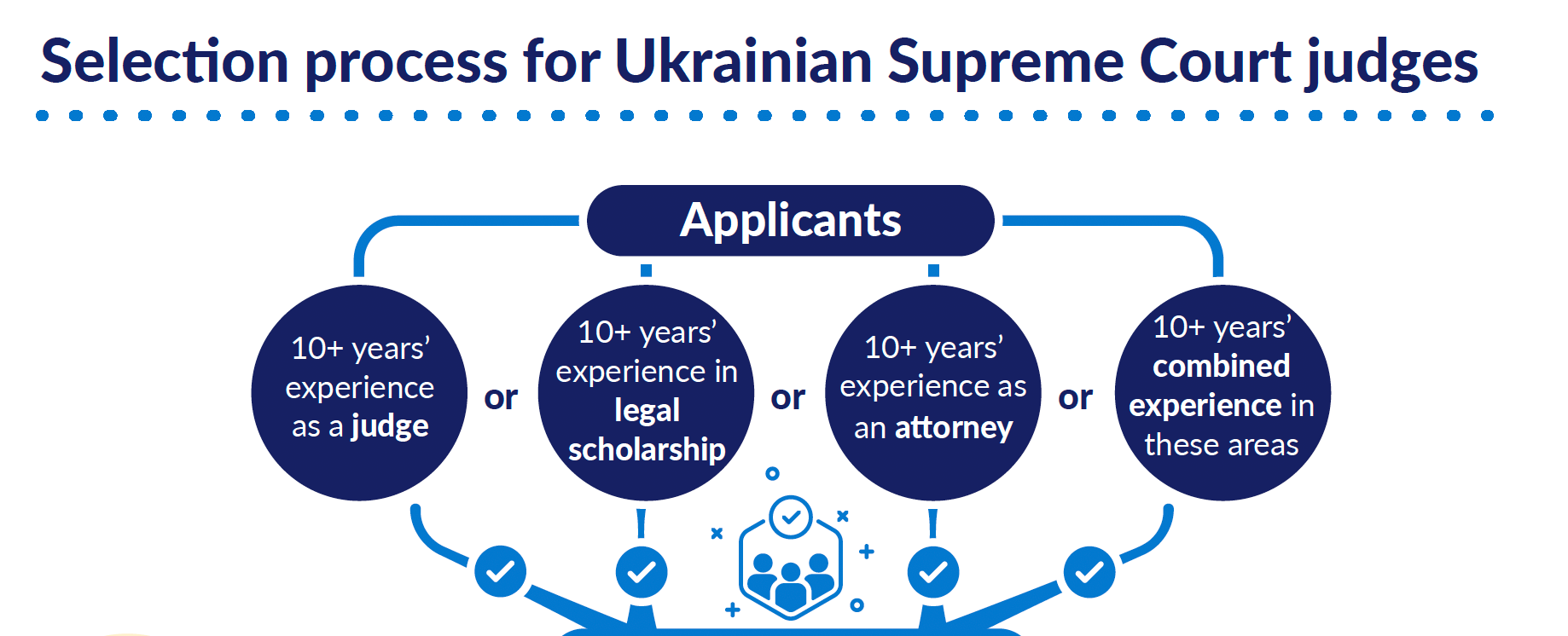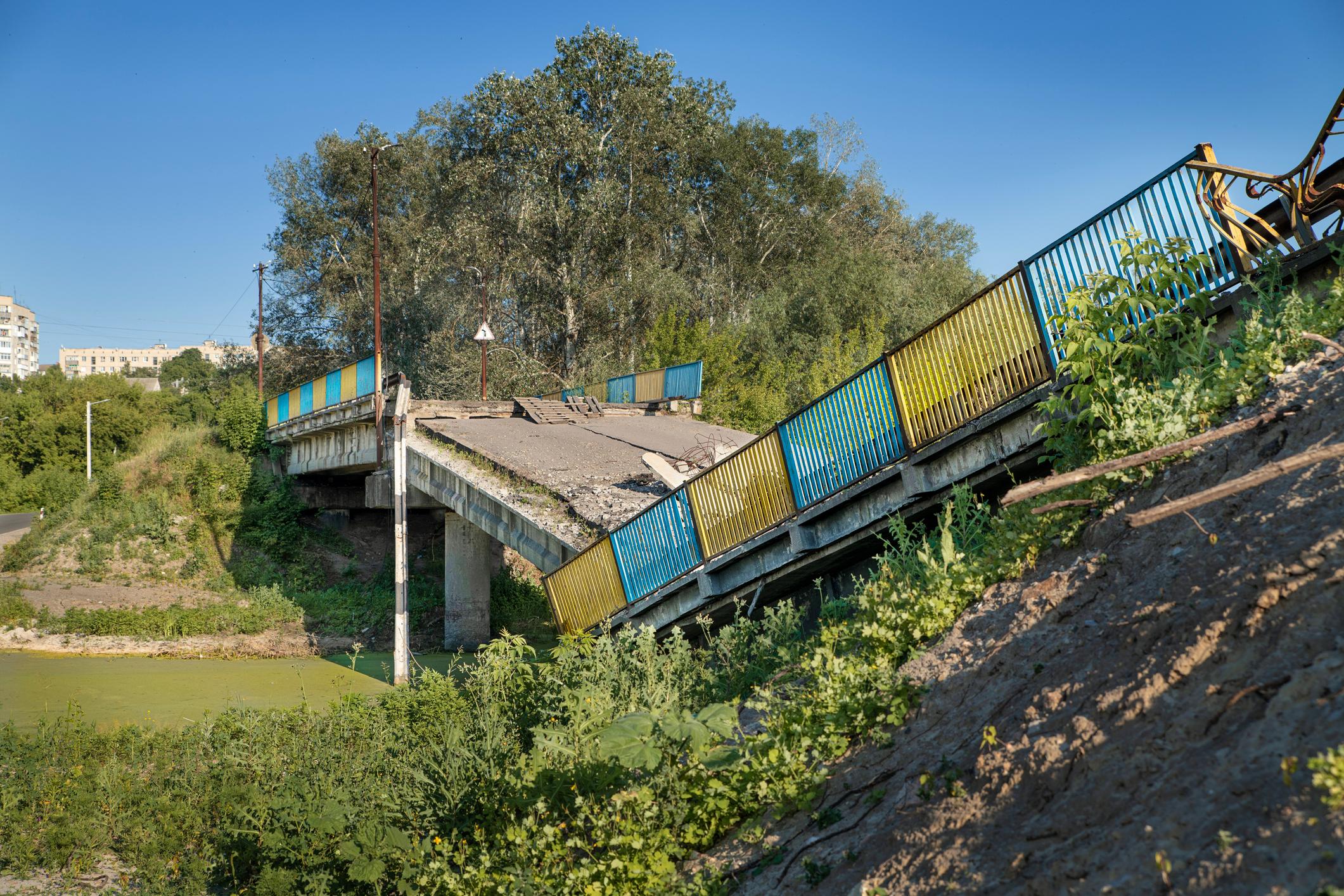Blog
Ukraine’s judicial reform agenda: Strengthening democracy amid war

In the midst of Ukraine’s two-year struggle against the full-scale invasion by the Russian Federation, the country is undergoing significant reforms and democratic changes. This trajectory is essential for its survival, given the importance of upholding the rule of law and combating corruption effectively. Moreover, the prospects for Ukraine’s post-war recovery and its integration into the EU hinge directly on these developments.
The justice sector in Ukraine’s move towards EU accession
Ukraine’s attainment of EU candidate status in June 2022 was a great catalyst for reform. The European Commission outlined seven priorities, the fulfilment of which would allow Ukraine to begin membership negotiations. Foremost among these were reforms concerning the rule of law, particularly the continuation of the reform of key judicial bodies – the High Council of Justice and the High Qualification Commission of Judges, which together are akin to a human resources department for Ukraine’s judiciary – alongside reforms to the procedure for selecting judges for the Constitutional Court.
To its credit, Ukraine made commendable strides in meeting all seven of the European Commission’s requirements. In response, the Commission hailed Ukraine’s achievement, and accession talks began – sooner than many had expected – in December 2023.
However, although Ukraine initiated the Commission’s required reforms in the summer of 2022, work to implement those changes is ongoing. For instance, while legislation has mandated a new procedure for the selection of judges for the Constitutional Court, challenges persist in preventing politically biased candidates from assuming positions within the Court. The structure of the selection commission – comprising three international experts and three Ukrainian political appointees – is at least partly responsible. Its effectiveness has been mixed, as the political appointees are prone to push politically loyal candidates to the Constitutional Court, leaving the system reliant on the international experts to resist such bias (see, for example, the DEJURE analyses on the selection process ofmembers of the High Council of Justice and the High Qualification Commission of Judges).
Another reform that is still in its infancy is the assessment of judges’ qualifications (both incumbent and prospective), which is being conducted by the High Council of Justice and the High Qualification Commission. This began only recently and they are yet to remove all those deemed unfit and appoint individuals of high integrity, including to the Supreme Court.
As judicial reform continues to unfold, Ukraine must infuse these efforts with new energy and focus – in three priority areas in particular – if it is to retain momentum and ensure its progress is sustainable.
First priority: Supreme Court reform
The Supreme Court stands as the apex institution within Ukraine’s judicial framework, serving as the final arbiter in civil, commercial, administrative, and criminal matters. (On constitutional issues, including interpreting the Constitution and assessing whether Ukrainian laws align with it, the Constitutional Court has primacy.)
The need for comprehensive reform is clear. For example, in spring 2023, a scandal unfolded when the National Anti-Corruption Bureau of Ukraine and the Specialized Anti-Corruption Prosecutor’s Office uncovered a US$2.7 million bribe involving the President of the Supreme Court. Subsequently, three-quarters of Supreme Court judges appointed as president of the court a successor over whom there were serious integrity concerns.
In response, non-governmental organisations and progressive members of the judiciary have proposed a two-step approach to its renewal. The first step should be vetting current Supreme Court judges to cleanse the institution of those of low integrity. This would involve the Higher Qualification Commission of Judges of Ukraine verifying the integrity declarations of Supreme Court judges, including information about relatives’ positions, alignment of the judge’s and their family’s lifestyle with declared income, and other relevant factors. If reservations persist, disciplinary proceedings against a judge may commence, potentially resulting in dismissal.
The second step would be a new selection process for judges, involving international experts, to ensure only candidates of high integrity are appointed to vacant positions. This method of Supreme Court renewal, endorsed in the European Commission’s 2023 report on Ukraine, is a potential game-changer. A renewed Supreme Court would not only bolster investor confidence by enhancing protections and signalling a commitment to upholding the rule of law and combating corruption.
The most effective way for international partners to assist Ukraine is by demanding that it:
- Adopt the law on the renewal of the Supreme Court
- Vet the sitting Supreme Court judges
- Introduce the new judicial selection procedure with meaningful involvement of international experts
Second priority: The High Administrative Court
In December 2022, parliament took a significant step towards combating judicial corruption by liquidating the District Administrative Court of Kyiv (DACK), a notorious symbol of judicial wrongdoing in Ukraine. The DACK – a first-instance administrative court with jurisdiction over virtually every central institution located in Kyiv – wielded huge authority, including oversight of cases involving municipal authorities, national bodies, and government agencies. Its leadership was elected during Yanukovych’s presidency in 2010, and all 49 judges were implicated in abuses of power and attempts to seize state power. Furthermore, the DACK was suspected to have played a crucial role in a Russian-backed scheme to legitimise the presidency of fugitive former president Viktor Yanukovych in the event of a hypothetical seizure of Kyiv in March 2022. Thus, the liquidation of the DACK marked a substantial achievement in upholding the rule of law and strengthening national security.
In the wake of the DACK, it is imperative that the two new courts that have been proposed are formally constituted: a regular Kyiv City District Administrative Court to handle cases involving municipal authorities and a Higher Administrative Court of Ukraine (HACU) to consider national-level cases. Given the important jurisdiction of the HACU, there is a pressing need to ensure the integrity of its judges and prevent the re-emergence of corruption. This necessitates a selection process involving the meaningful participation of international experts with impeccable reputation, akin to the successful model implemented during the establishment of the High Anti-Corruption Court.
The most effective way for international partners to assist Ukraine is by demanding that it:
- Adopt the law on the establishment of the HACU
- Involve international experts, in a meaningful way, in the selection process for judges
Third priority: Reform of legal education
All of the initiatives discussed here are doomed to only partial success without the implementation of legal education reform. In recent years, a significant shortage of personnel has emerged within the judicial system. Moreover, the establishment of a robust judiciary necessitates a concurrent legal education reform to prepare a proficient workforce – a need that remains unmet.
The way lawyers are currently trained in Ukraine’s universities and law-enforcement agencies undermines legal-sector development. Law-enforcement academies train one-third of all legal professionals in the country and receive approximately half of the state funding allocated for law programmes. However, instead of fostering critical thinking skills, students in law-enforcement settingsare often subjected to a curriculum and culture focused on obedience, prioritising military drills (even before the war) over intellectual development. This has contributed to an imbalanced, two-tier system in legal training, with graduates from law-enforcement academies lagging significantly behind those from universities in their knowledge and skills.
Despite these challenges, there have been notable accomplishments. In late November 2023, the first master’s students took the new Unified State Qualification Exam (USQE) – an analogue of the Bar exam in the US – marking an important milestone in legal education reform. However, it is important that the shortcomings of this first USQE are addressed: enhancing the exam curriculum, refining the quality of test questions, and establishing reasonable benchmark scores during exam preparation will definitely contribute to combating corruption and improve the quality of legal education.
The EU highlighted concerns regarding legal education in the Ukraine Report 2023 (as did the G7 in 2024), recommending that separating the training of lawyers in universities and law-enforcement academies would bring about improvements.
The most effective way for international partners to assist Ukraine is by demanding that it:
- Clearly delineate legal education and law enforcement training
- Improve and develop the USQE
The EU’s terms are actively welcomed in Ukraine
Despite the fact that reforms in Ukraine are successfully taking place even amid the war, international partners possess crucial tools to further drive these changes: setting conditionalities for the three mentioned priorities and not giving any leeway on reforms. Ukraine’s swift fulfilment of seven complex conditions within a year-and-a-half paved the way for EU accession negotiations, demonstrating the efficacy of such measures.
Furthermore, recent research indicates strong support among Ukrainians for the reforms necessary for EU negotiations, with 73% backing the EU demands for these reforms and 60.1% endorsing the EU’s efforts to encourage Ukraine to combat corruption.
Hence, the EU should use the historic leverage it now possesses and uphold rigorous demands for reforms from Ukraine, maintaining conditionalities without compromise. This will allow Ukraine to further integrate with the EU. Approving incomplete reforms would undermine progress and stall momentum for years. Ukraine must navigate this challenging reform path if it is to emerge as a prosperous European state, enriching the Euro-Atlantic community both economically and in terms of international security.
See also a related, engaging case study on judicial reform in Ukraine with an explanatory infographic.

Disclaimer
All views in this text are the author(s)’, and may differ from the U4 partner agencies’ policies.
This work is licenced under a Creative Commons Attribution-NonCommercial-NoDerivatives 4.0 International licence (CC BY-NC-ND 4.0)


